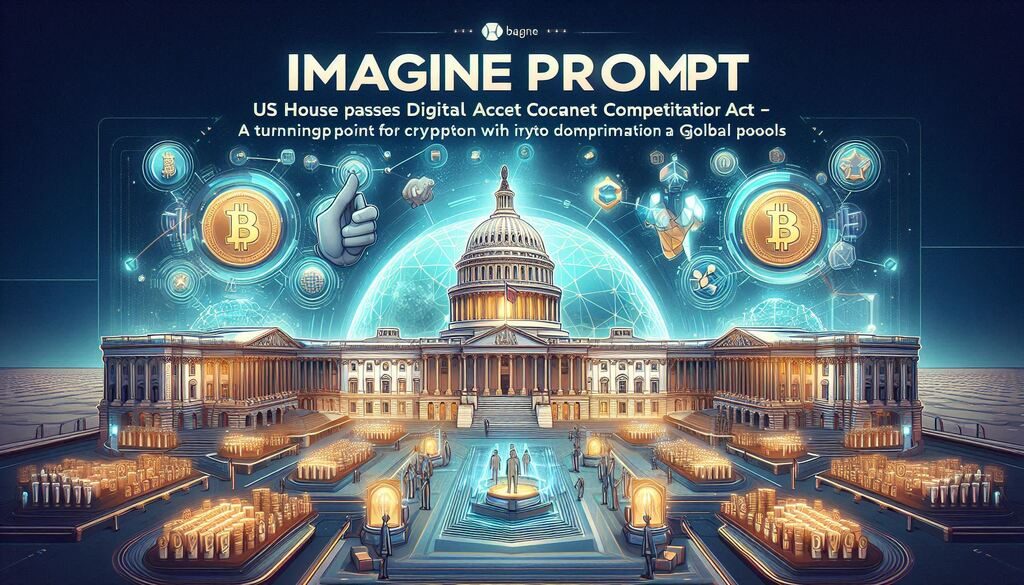
On April 18, 2022, the U.S. House of Representatives passed the Digital Asset Competition Act, marking a pivotal moment in American cryptocurrency regulation. The bill, designed to foster innovation while ensuring consumer protection, aims to clarify the legal framework for digital assets and position the U.S. as a global leader in blockchain technology.
This legislation comes amid growing concerns that overly restrictive policies could push crypto businesses offshore. With bipartisan support, the bill signals a shift toward balanced regulation—one that encourages technological advancement while mitigating risks like fraud and market manipulation.
Key Provisions of the Digital Asset Competition Act
1. Regulatory Clarity for Crypto Assets
Defines digital assets under U.S. law, distinguishing between commodities, securities, and currencies.
Grants the CFTC (Commodity Futures Trading Commission) primary jurisdiction over most cryptocurrencies, while the SEC (Securities and Exchange Commission) retains oversight of security tokens.
2. Support for Blockchain Innovation
Establishes a sandbox program for startups to test blockchain solutions without immediate regulatory burdens.
Allocates $500 million in federal grants for blockchain R&D, focusing on scalability, security, and interoperability.
3. Consumer & Investor Protections
Mandates disclosure requirements for crypto projects to prevent fraud.
Strengthens anti-money laundering (AML) and know-your-customer (KYC) rules for exchanges.
4. Stablecoin Regulation
Requires 1:1 reserve backing for all dollar-pegged stablecoins.
Imposes monthly audits to ensure transparency.
Why This Bill Matters
1. Ending Regulatory Uncertainty
The U.S. has lagged behind the EU and Asia in crypto regulation, creating confusion for businesses.
Clear guidelines could attract $1 trillion+ in institutional investments over the next decade.
2. Preventing a "Crypto Brain Drain"
Many blockchain firms have relocated to Singapore, Switzerland, and Dubai due to unclear U.S. policies.
This bill aims to retain talent and startups within American borders.
3. Global Competitive Edge
China’s crypto ban and EU’s MiCA regulations have reshaped the industry.
The U.S. now seeks to lead in Web3 innovation, competing with tech hubs like Zurich and Seoul.
Market & Industry Reactions
1. Immediate Crypto Market Response
Bitcoin (BTC) rose 3% post-announcement, reclaiming $42,000.
Ethereum (ETH), Solana (SOL), and other altcoins also saw gains.
2. Statements from Key Figures
Rep. Patrick McHenry (R-NC): "This bill ensures America doesn’t fall behind in the digital economy."
SEC Chair Gary Gensler: "We support innovation but will enforce against fraud."
Coinbase CEO Brian Armstrong: "A major step toward mainstream adoption."
3. Criticism & Concerns
Sen. Elizabeth Warren (D-MA): "We need stricter rules to prevent crypto scams."
Privacy Advocates: Worry that stricter KYC could harm decentralized finance (DeFi).
What’s Next?
Senate Approval: The bill moves to the Senate, where amendments are likely.
Potential Timeline: If passed, implementation could begin by early 2023.
Impact on Businesses: Exchanges like Coinbase, Kraken, and Binance US may need to adjust compliance strategies.
Conclusion: A New Era for U.S. Crypto Policy
The Digital Asset Competition Act represents a watershed moment for cryptocurrency regulation in America. By balancing innovation with oversight, the U.S. positions itself to dominate the next phase of financial technology.
Payment Network
We support major crypto currencies
-

BTC
-

ETH
-

USDT
-

BNB
-

USDC
-

DOGE
-

TRX
-

LTC
-

BCH
Subscribe to our Crypto Mining service for the latest updates, exclusive offers.

